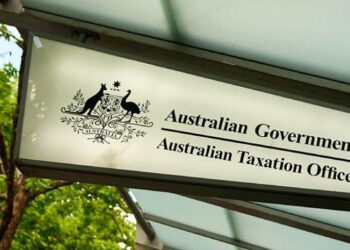These were coupled with high inflation, unprecedented interest rate rises and increased scrutiny of the sector.
However, despite the challenges the sector faced, it continued to grow in size and resilience and the pace looks set to continue into the next year.
Before ushering in 2024, let’s look at what made headlines in 2023 and count down the top 10 stories on SMSF Adviser.
- Man, 81, accused of stealing nearly $1m intended for SMSF investments
Serial offender Robert Wayne Collins was charged in November with 10 counts of aggravated theft and one count of aggravated dishonest dealing with documents.
The 81-year-old was accused of stealing nearly $1 million intended for investment into SMSFs.
Police alleged that between August 2015 and March 2022, Collins was acting in a position of trust when he was paid by several victims over $913,000.
These paid funds were to be managed via SMSF and international investment opportunities, along with obtaining a loan for one of the victims. Police identified that the victim’s funds were used by the man for his personal use.
Collins is one of Australia’s most notorious conmen with a criminal history stretching close to 50 years. His first conviction was in 1973, and he has spent 18 years behind bars but was released early from a sentence handed down in 2020 for his last major fraud, a New York City property scam.
Read more here.
- ASIC puts super industry on notice
In November, ASIC warned the superannuation industry that it would be on its radar in 2024, stating that its new priorities will include a focus on member service failures and misconduct relating to the erosion of superannuation balances.
The regulator said the new priorities relating to insurance claims handling, compliance with financial hardship obligations and the reportable situation regime would also be part of its 2024 focus.
The addition of the superannuation industry to ASIC’s 2024 priorities came after complaints about the industry to AFCA continued to rise.
ASIC said it would be taking action against gatekeepers such as auditors, registered liquidators, and financial services and credit licensees who do not comply with their legal obligations.
ASIC deputy chair Sarah Court said the commission had set “ambitious enforcement priorities in part as a response to industry and consumer demand for more transparency on our key areas of focus”.
“The enforcement priorities hold us, as a regulator, accountable, and importantly, they send a clear compliance and deterrence message to the entities we regulate,” she said.
Read more here.
- ATO updates guidance on death benefits
Death benefits have always been one of the most talked about topics in the industry, and it was no different in 2023.
In February the ATO provided new guidance on when benefits requested by members shortly before death will be a member benefit or a death benefit.
Its guidance in ‘Paying superannuation death benefits’ as part of QC 45454 aimed to help explain when a benefit is a death benefit or a member benefit and stated that where a member has requested an amount to be paid to their fund before they died but died before they received it, it may be a member benefit in some limited cases.
Despite the release of the guidance, confusion still surrounds the exact process and procedures over the payment of death benefits and the issue is always one of the most well-read on the SMSF Adviser site.
Read more here.
- Advice community outraged following significant jump in ASIC levy
As the debate continued to swirl around the cost and accessibility of financial advice, ASIC decided the time was right to increase the per-adviser cost.
In June, ASIC’s Cost Recovery Implementation Statement confirmed to cover the cost of regulating licensees that provide personal advice to retail clients, which stood at an estimated $55.5 million in 2022–23, advisers would pay a minimum levy of $1,500 plus $3,217 per adviser.
Under the former government’s ASIC levy freeze, the costs charged to the sector amounted to $22.8 million. This meant, at the time, advisers were charged a minimum levy of $1,500, plus $1,142 per adviser.
Sarah Abood, CEO of the Financial Advice Association Australia, said the group was “extremely concerned” to see the impact of the end of the freeze on the ASIC levy resulting in an almost tripling of the per-adviser cost.
“This comes before the recommendations of the recently-released review into the IFM for ASIC have been implemented. The review highlighted several deficiencies in the current model and the need for reform,” she said.
Read more here.
- Details of tax calculation for $3m threshold a ‘mixed blessing’
The SMSF Association went into the debate over the $3 million super cap proposal cautiously in March.
CEO of the SMSFA, Peter Burgess, tentatively praised the fact sheet the ATO released explaining the details of how tax on earnings will be calculated.
Mr Burgess said that the good news about the fact sheet was that it meant super funds, including SMSFs, would not be required to calculate the earnings attributable to the member’s balance above $3 million.
The fact sheet stated that the ATO would use a set formula to calculate the earnings based on the information it receives from each super fund every year.
This formula would calculate the difference between the member’s total super balance for the current and previous financial year and adjust for net contributions (excluding contributions tax paid by the fund on behalf of the member) and withdrawals.
Mr Burgess said in March the Association’s preferred approach would have been for the ATO to do a calculation of ‘notional earnings’ using a similar approach to the existing excess contributions tax regime.
From that point on, the gloves came off.
Read more here.


